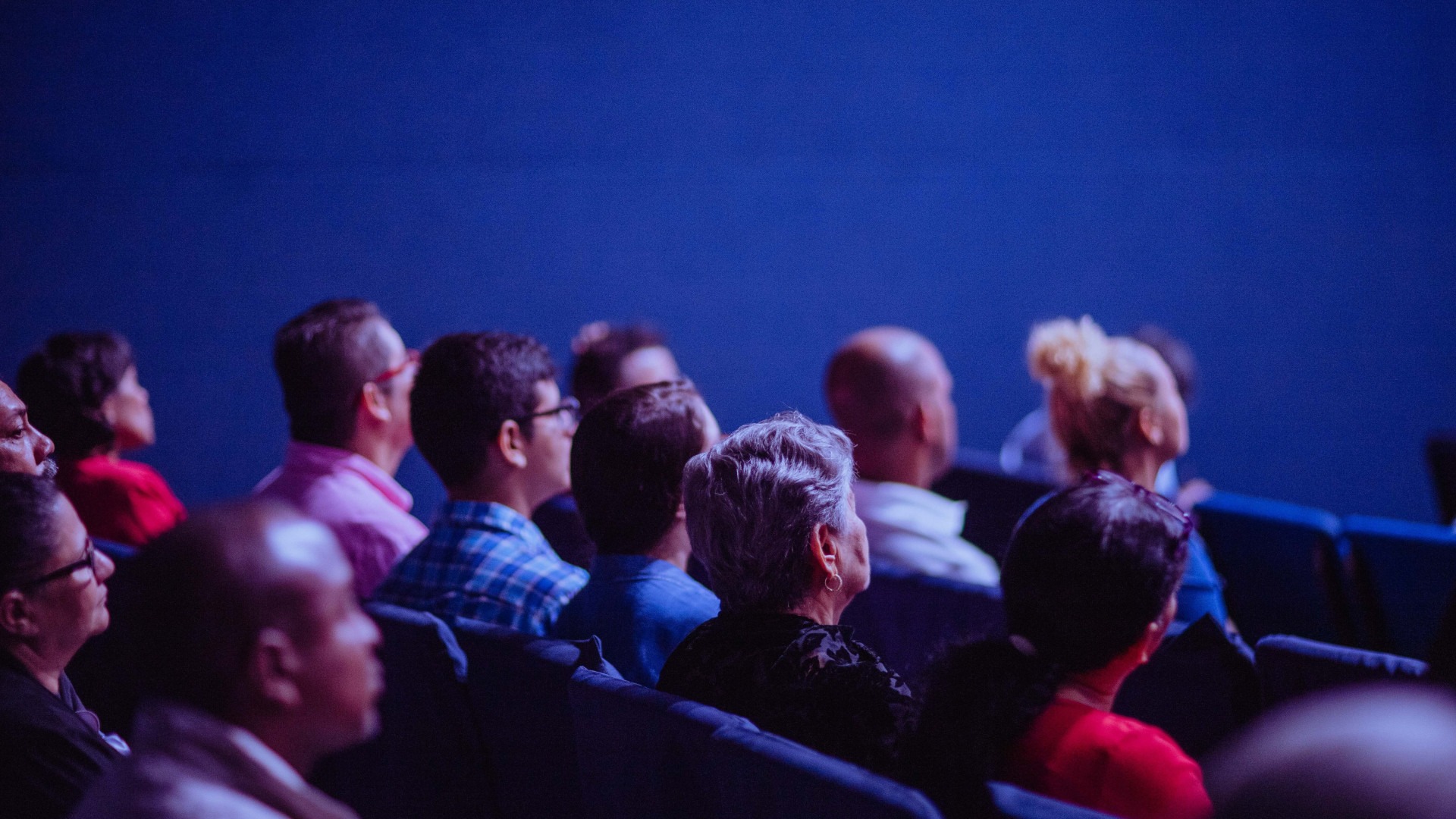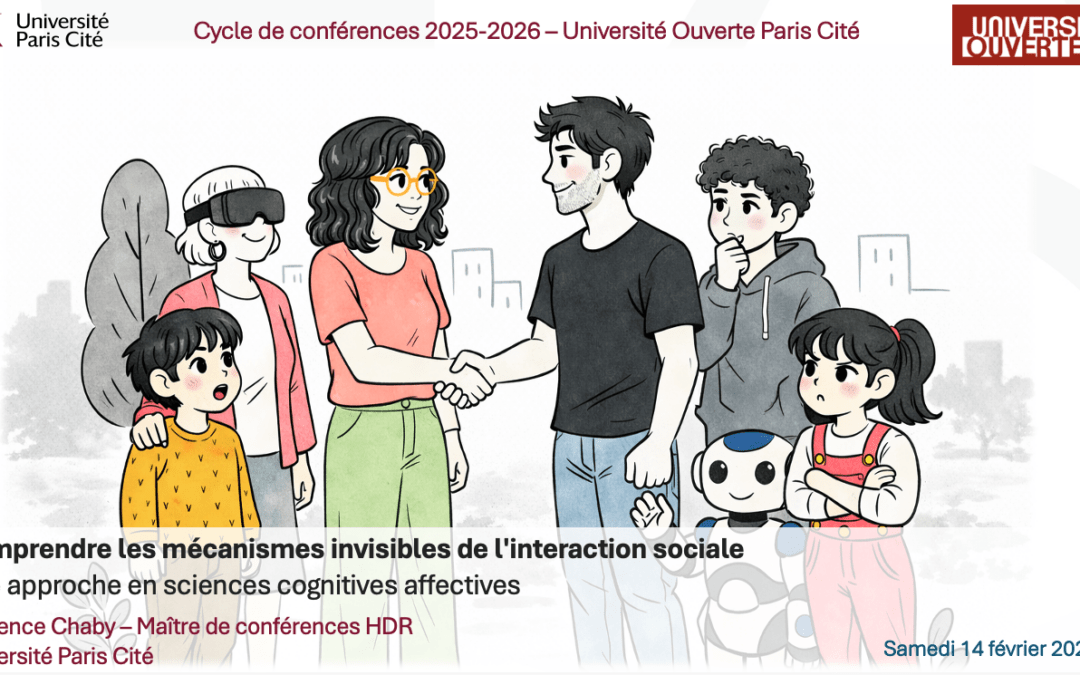Nous aurons le plaisir d’accueillir Karin Roelofs de Donders Institute for Brain Cognition and Behavior et Behavior Science Institute de l’Université Radboud au Pays-Bas. Il vous sera possible de participer à son séminaire le Lundi 20 novembre 2023 à 14h à l’Institut de Psychologie.

Human defensive freezing and its impact on decision making
Behavioural scientists often assume that automatic defensive threat reactions, while essential in explaining animal behavior, only have limited value when it comes to understand human behavior. There is, however, increasing evidence that defensive reactions, such as freezing, have an impact on subsequent approach-avoidance decisions under acute threat in humans. Understanding the mechanisms that drive such decisions is particularly relevant for patients with anxiety disorders, whose persistent avoidance is key to the maintenance of their anxiety. In recent years, computational psychiatry has made substantial progress formalizing the mechanisms through which we make (mal)adaptive decisions. However, most current models ignore the transient psychophysiological state of the decision maker. Here, I argue that the balance between para-sympathetic and sympathetic activity is instrumental in driving the psychophysiological state of freezing, and that it influences perception and approach-avoidance decisions under acute threat in different ways. To illustrate, I first explore the effects of freezing on different kinds of human action decisions under threat. Next, I discuss recent translational (rodent-human) work that has helped to characterize the neural mechanisms implicated in animal and human defensive freezing. Finally, I will discuss effects of the psychophysiological state of freezing on perceptual sensitivity. Overall, this work suggests that rather than reflecting a passive fear state — the particular somatic and cognitive characteristics of freezing help to optimize sensory processing, action preparation and value-integration during approach-avoidance decision making. This reconceptualization of freezing has implications for its role in decision-making under threat and for understanding maladaptive coping in anxiety related disorders.
Mots clés : Decision making under threat, Approach-avoidance behaviour, Neural mechanisms, Human defensive reactions, Human freezing, Psychophysiological stress-reactions, Affective neuroscience, Approach avoidance decision making, Human defensive threat states
Courte biographie
Karin Roelofs is Professor of Experimental Psychopathology at Radboud University (Behavioural Science Institute) and chair of the Experimental Psychopathology and Affective Neuroscience group (EPAN group) at the Donders Institute. With her group she studies the neurocognitive mechanisms underlying stress-vulnerability and resilience in health and psychopathology. With a clear focus on neurocognitive mechanisms of defensive stress-responses, she uses various brain imaging (fMRI, MEG) techniques, combined with neural stimulation or pharmacological interventions during emotional control and decision making tasks. Karin Roelofs is member of the Royal Science Academy (KNAW) Academia Europaea (AE), vice-president of the Association for ERC Grantees (AERG) and chair of the International Resilience Alliance (INTRESA). She received two ERC grants (starting and consolidator), several national grants including NWO-VICI and is involved in international research-consortia (Horizon2020, NWO-Crossover). In 2020 Roelofs was awarded the prestigious Evens Science Prize, an international prize for cognitive neuroscience with societal relevance, for her contributions to the field of stress-resilience research.
Publications liées au sujet
- Roelofs K. Dayan, P. (2022). Freezing revisited: Coordinated autonomic and central optimization of threat coping. Nature Reviews Neuroscience 23, 568–580.
- de Voogd LD, Hagenberg E, Zhou YJ, de Lange FP, Roelofs K. (2022). Acute threat enhances perceptual sensitivity without affecting the decision criterion. Sci Rep. 12(1):9071.
Accès
Le séminaire se déroulera le 20 novembre 2023 à 14h en salle du Conseil à l’Institut de Psychologie au 71 avenue Edouard Vaillant, 92100 Boulogne-Billancourt.
L’accès au bâtiment est contrôlé. Il sera donc nécessaire de vous inscrire si vous n’avez pas de carte d’accès Université Paris Cité. Contactez le secretariat-vac@psychologie.parisdescartes.fr pour toute information ou pour vous inscrire.
Access
The seminar will take place on 20th november at 14:00 in “Salle du Conseil” at Institut de Psychologie, 71 avenue Edouard Vaillant, 92100 Boulogne-Billancourt.
The security guard will check your identity. You will need to register to access to the seminar if you do not have a Université Paris Cité’s access card. Please contact secretariat-vac@psychologie.parisdescartes.fr for registration or if you need further information.
À lire aussi

Université Ouverte 2026
Dans le cadre du programme de l’Université Ouverte de l’Université Paris Cité, Laurence Chaby, maître de conférences en psychologie cognitive au laboratoire Vision Action Cognition, interviendra le samedi 14 février 2026 lors d’une conférence intitulée « Comprendre...
![[09/02/26] Ali BATIKH](https://vac.u-paris.fr/wp-content/uploads/sites/11/2022/02/Seminaires-pexels-luis-quintero-2774556-1080x675.jpg)
[09/02/26] Ali BATIKH
Nous aurons le plaisir d’accueillir Ali Batikh, Chercheur post-doctoral, Université de Bordeaux. Il vous sera possible de participer à son séminaire le Lundi 09 février 2026 à 14h à l’Institut de Psychologie en salle 1046.Saccadic adaptation: cross-modal transfer,...

Le laboratoire VAC fête la fin d’année
À l’issue du conseil de laboratoire qui s’est tenu ce mardi 15 décembre, les membres du laboratoire Vision Action Cognition se sont retrouvés pour fêter la fin d’année autour d’un repas convivial, placé cette année sous le thème des îles. Ce moment festif, organisé...
![[09/02/26] Ali BATIKH](https://vac.u-paris.fr/wp-content/uploads/sites/11/2022/02/Seminaires-pexels-luis-quintero-2774556-1080x675.jpg)
[Archive][08/12/25] Laurie Geers
Nous aurons le plaisir d’accueillir Laurie GEERS, Chargée de recherche FNRS, Université catholique Louvain, Belgique. Il vous sera possible de participer à son séminaire le Lundi 08 décembre 2025 à 14h à l’Institut de Psychologie.Does the brain see double? The effect...
